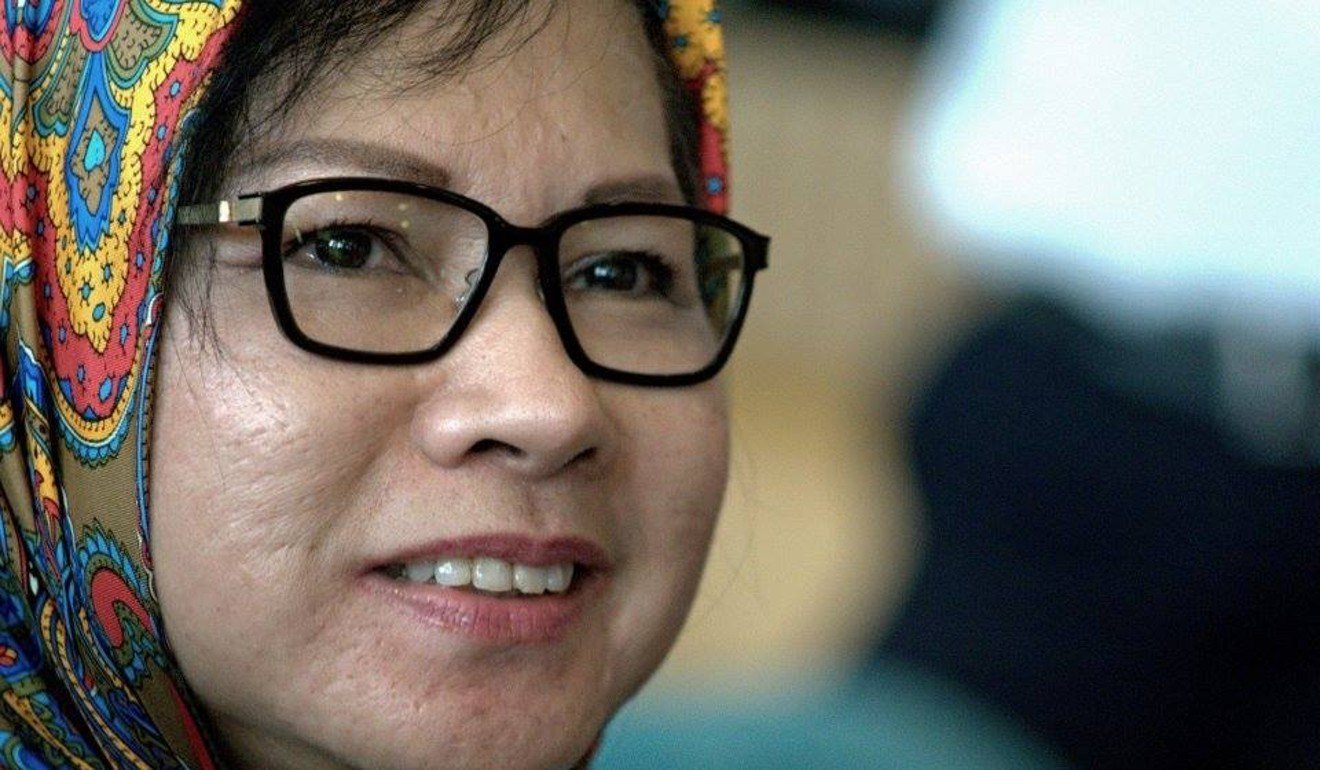
As Ahok takes reins at Indonesia’s state energy giant Pertamina, a corruption case lingers
- The ex-Jakarta governor has been tasked with reducing crude oil imports and weeding out graft at the company
- But experts say an ongoing corruption case involving former CEO Karen Agustiawan shows how challenging it is to make business decisions at state-owned enterprises
Indonesian state energy firm Pertamina’s most senior leader, former Jakarta governor Basuki Tjahaja Purnama, earlier this week called on officials at Indonesia’s state-owned enterprises to be role models in fighting graft.
Purnama, also known as Ahok, was named president commissioner of Pertamina in late October, a move analysts say was made to reduce Indonesia’s crude oil imports and boost reforms in the company.
Graft is a persistent problem in Indonesia’s business sector but in the case of Agustiawan, who was in charge of Pertamina from 2009 to 2014, there are industry players and analysts who maintain that she simply made a bad business decision.
Why Indonesia and Hong Kong must resolve issues faced by domestic workers
In June this year, Agustiawan was sentenced to eight years in prison and fined 1 billion rupiah (US$71,400) by Jakarta’s corruption court. According to the presiding judge, she had violated investment procedures and caused state losses amounting to 568 billion rupiah (US$40.5 million).
Agustiawan’s initial appeal was turned down in early October, and she is currently waiting for a final ruling in the case from the Supreme Court. Soesilo Aribowo, her lawyer, told the Post that Agustiawan expects to be cleared from all charges.

Agustiawan was tasked with boosting Indonesia’s oil production, which has been below 1 million barrels per day for the past 15 years due to various reasons including ageing oil blocks and a lack of investment.
The company flourished under her leadership. In 2013, Pertamina’s US$57.93 billion in revenue saw it ranked No 175 on the Fortune 500 list of the world’s biggest corporations by revenue, placing it above the likes of Facebook.
In 2009, Pertamina purchased a 10 per cent stake in Australia-based Roc Oil Limited, which operates the Basker Manta Gummy oilfield, for A$66.2 million (US$45 million). According to The Jakarta Post, the purchase was made with the expectation of gaining 812 barrels of oil per day, but it could only produce 252 barrels per day. The block was shut down in 2010 after it was found economically unviable.
Local media reported in 2010 that the state audit agency did not find any irregularities in Pertamina’s investment. Last year, however, the office of Indonesia’s attorney general opened a corruption case against Agustiawan, stating that her decision to invest in the block had caused the state to suffer losses.
Chinese ‘fake cop’ scams are setting up in Southeast Asia: Indonesian police
Fahmi Radhi, an economist at Gajah Mada University, said criminalising Agustiawan’s investment set a bad precedent for future SOE executives, making it difficult for them to make business decisions.
“[Her] move [to invest in the Basker Manta Gummy block] is a pure corporate action,” Fahmi said, adding that the evidence showed Agustiawan did not make any personal profit from the investment.
Another industry analyst, who shares Fahmi’s view, alleges that the recent ruling and charges against her were “orchestrated” in such a way to put Agustiawan in jail.

“It was a bizarre case,” the analyst said, adding that the former Pertamina chief executive was the victim of political infighting in Indonesia’s energy business and had been made a scapegoat.
Errie Sudarmo, an energy analyst and a lecturer at the University of Indonesia, lauded Agustiawan’s performance during her stint at Pertamina and agreed that her investment decision should not have been criminalised.
“Even if there was a failure, it would be just part of the risk of any corporate decision. It is a common thing, nothing so special about it,” Sudarmo said.
Chinese fishermen: off the hook in Indonesia now Pudjiastuti’s gone?
Local media has carried interviews with representatives of Indonesia’s energy community, who have voiced their disquiet about Agustiawan’s conviction. Moshe Rizal Husin, executive director of Aspermigas – the association of Indonesian oil and gas companies – has said international investors are keeping a close eye on the case.
Analysts did see a positive in the appointment of Ahok as president commissioner, saying that he was tasked not only with cleaning up graft but also about ensuring Pertamina meets best practices in terms of its investment policies and decisions.
“Given Ahok’s integrity, he could help improve corporate governance at Pertamina,” said Gunarto Myrdal, an economist at Maybank Indonesia.

